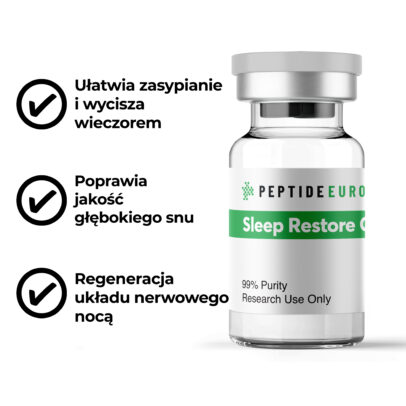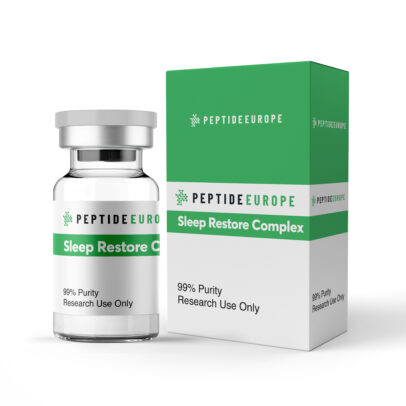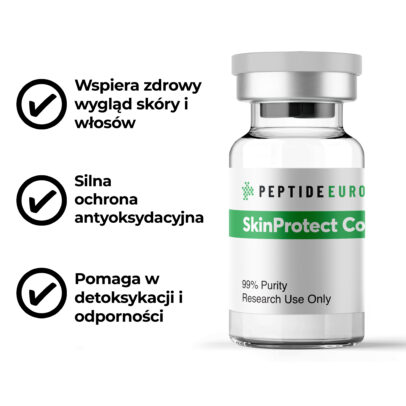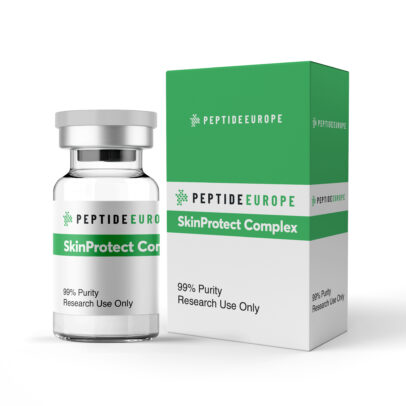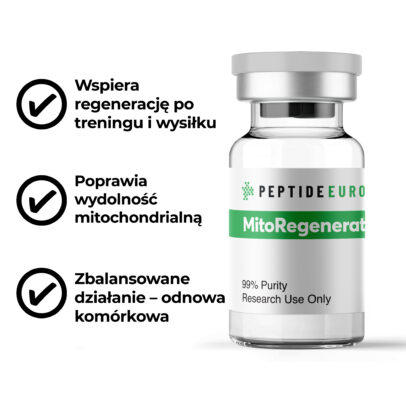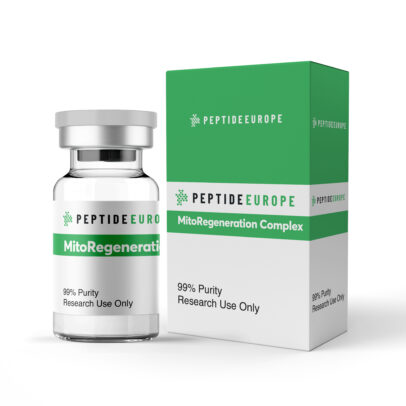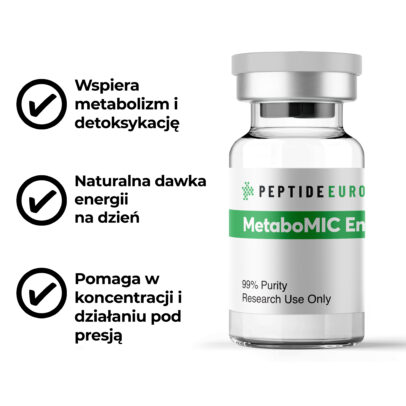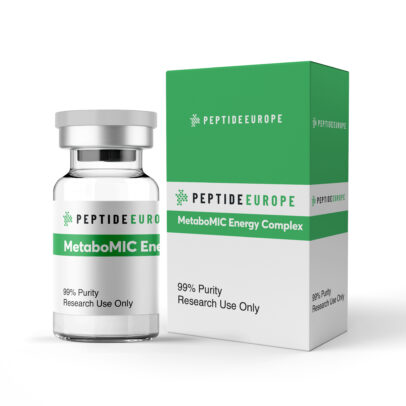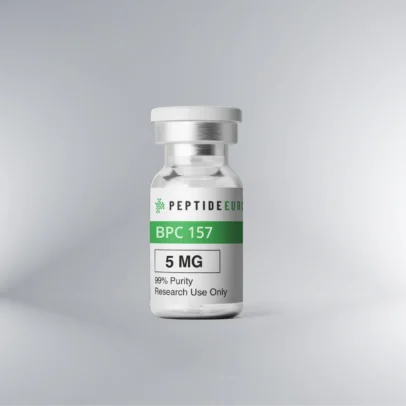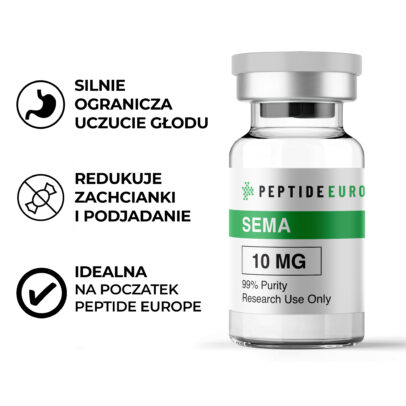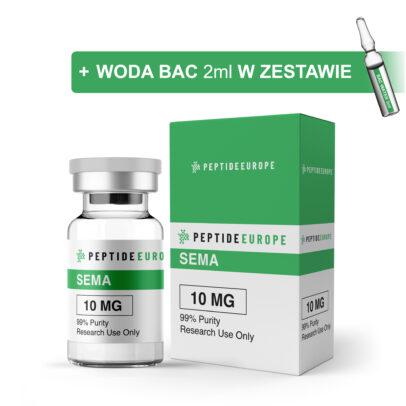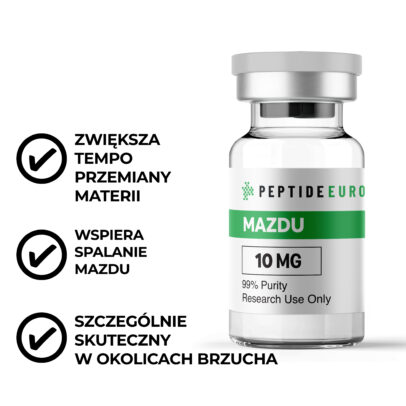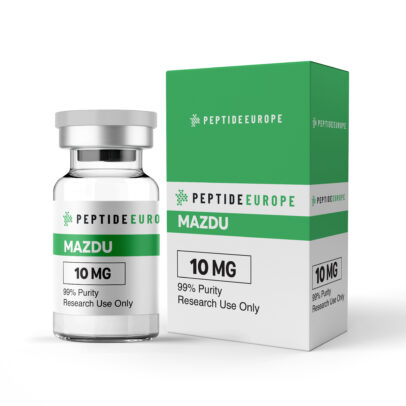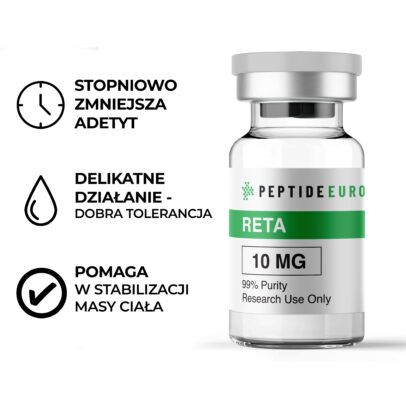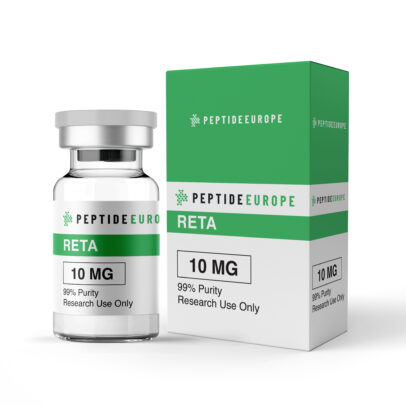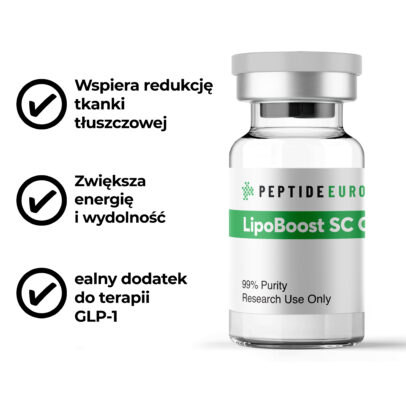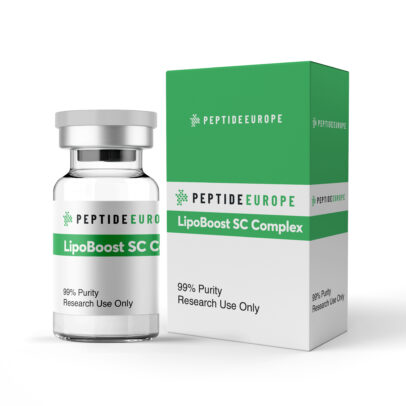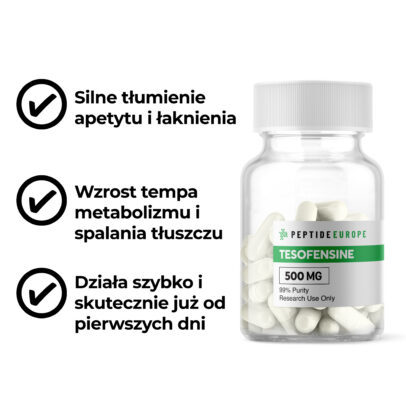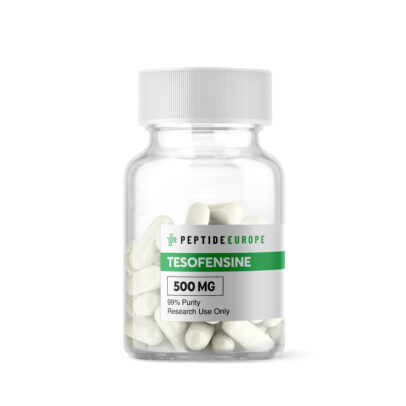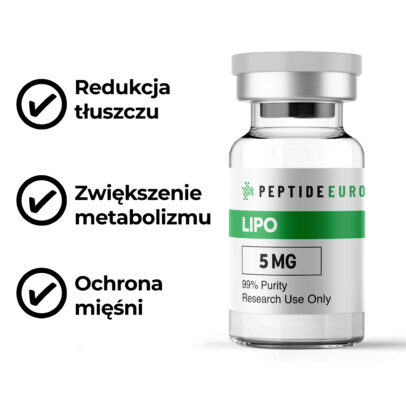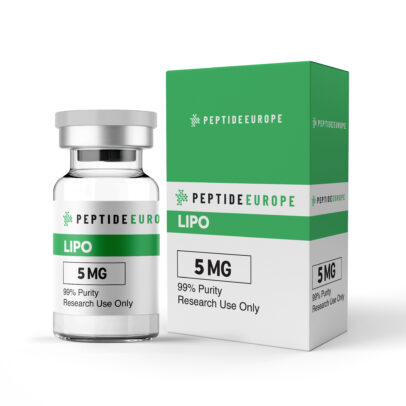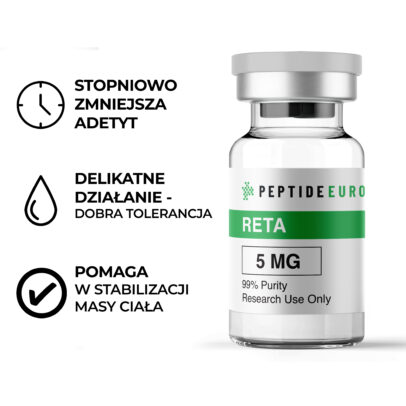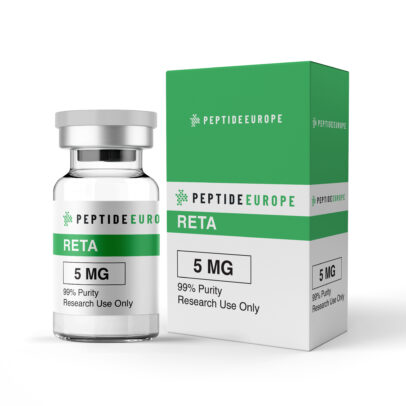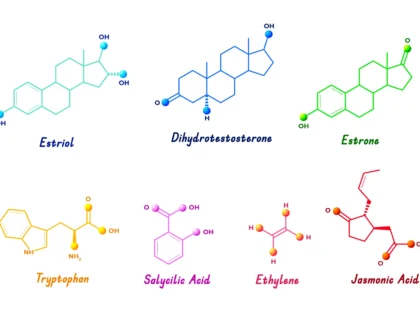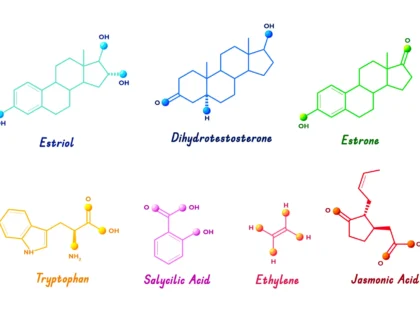Exploring Growth Hormone Peptides and Research Labs: What to Know Before You Order Peptides Online
-
PepEurope
- Posted on
- 0 comments

Peptides have taken the spotlight in recent years, especially in the field of scientific and pharmaceutical research. As short chains of amino acids, peptides act as critical messengers in the body, regulating biological functions and supporting numerous physiological processes.
From growth hormone stimulation to tissue repair and anti-aging, research peptides like BPC 157, CJC 1295, GHK-Cu, and Ipamorelin have become key topics of exploration in peptide research labs.
For those involved in scientific research, understanding the nature and function of these compounds is essential before deciding to order peptides online for legitimate investigational use.
Introduction to Peptides and Their Role in Research
Peptides are naturally occurring biological molecules made up of amino acids linked by peptide bonds. In the realm of research, they serve as models for understanding disease pathways, developing drug candidates, and testing biological responses. Scientists investigate various peptides due to their precise actions in targeted areas of the body.
These include regenerative peptides like BPC 157, hormone-stimulating peptides such as Ipamorelin and CJC 1295, and copper-bound peptides like GHK-Cu. It’s important to note that companies like pepeurope.net supply peptides strictly for research purposes, not for human consumption or medical use. Their high-quality peptides are used by labs across Europe to advance scientific studies.
Sleep Restore Complex (sen / regeneracja)
SkinProtect COMPLEX (skóra / antyoksydacja)
MitoRegeneration COMPLEX (mitochondria / regeneracja)
MetaboMIC Energy (mikrobiota / metabolizm)
Peptides and Growth Hormone Stimulation
Among the most studied peptides are growth hormone-releasing peptides (GHRPs), which play a pivotal role in stimulating the release of growth hormone (GH) from the pituitary gland. Unlike natural GHRH (Growth Hormone-Releasing Hormone), synthetic GHRPs bind to their own specific receptors, offering an alternative route for GH stimulation.
This makes them valuable for research into aging, recovery, metabolism, and more. GHRPs not only stimulate GH secretion but also elevate IGF-1 (Insulin-like Growth Factor 1) levels over time, contributing to cell repair and growth. Their unique mode of action, including partial resistance to somatostatin (a GH inhibitor), makes them attractive targets for researchers.
Ipamorelin Peptide: A Targeted GH Secretagogue
Ipamorelin is a popular GHRP used in studies related to growth hormone stimulation. It exhibits selective GH-releasing action without significantly affecting cortisol or prolactin levels, making it one of the most refined peptides in this class. Researchers favor Ipamorelin due to its clean, dose-dependent profile and minimal side effects in clinical environments. It’s frequently used in research involving recovery, anti-aging, and performance recovery pathways.
CJC 1295: GHRH Analog for Prolonged GH Secretion
CJC 1295 is a modified analog of GHRH that extends the half-life of GH release. Its ability to bind with serum albumin increases its duration of action, making it an ideal candidate for studies requiring consistent GH levels over time. In combination with Ipamorelin, CJC 1295 is often investigated for its synergistic effects on GH and IGF-1 production, tissue regeneration, and fat metabolism.
Spotlight on Popular Research Peptides
BPC 157 Peptide
BPC 157 (Body Protection Compound 157) is a peptide derived from gastric juice and is gaining attention for its regenerative potential. Research studies have shown that BPC 157 supports tendon and ligament healing, gut repair, and even neural regeneration. Its ability to accelerate healing and reduce inflammation without known toxicity makes it a leading candidate for recovery-based research.
GHK Peptide (GHK-Cu)
GHK-Cu is a naturally occurring copper peptide involved in wound healing, tissue remodeling, and anti-inflammatory actions. It binds with copper to influence gene expression related to tissue repair and skin regeneration. In scientific studies, it has been shown to promote collagen production, improve skin elasticity, and support hair growth. This peptide is heavily researched in dermatology and regenerative medicine.
SEMA 10 (GLP-1)
RETA 10 (GLP-1 + GIP + GCGR)
Inside Peptide Labs: How Are Peptides Made and Tested?
Peptides used in research are synthesized in specialized labs through a controlled chemical process that links amino acids into desired sequences. This is typically done via Solid Phase Peptide Synthesis (SPPS) or Liquid Phase Peptide Synthesis (LPPS).
Research-grade peptides undergo stringent purification processes and quality control, including mass spectrometry and HPLC analysis, to ensure accuracy and purity. Labs also test for peptide stability and efficacy in preclinical environments. In contrast, diagnostic labs focus on measuring peptide levels in biological fluids, such as C-peptide for insulin production or BNP for heart function.
What Happens in Peptide Research Labs?
Peptide research labs are the backbone of innovation in the field of biotechnology and pharmaceuticals. These labs specialize in developing peptide-based drugs, diagnostics, and delivery systems. For example, the Walensky Lab works on cancer therapeutics using stapled peptides, while the Tietze Lab focuses on transmembrane peptides for targeted delivery.
Meanwhile, the Kay Lab studies D-peptide inhibitors for HIV, and the Bloom Lab explores anti-obesity therapies that utilize blood-brain-barrier-penetrating peptides. Such research has led to breakthroughs in how we understand cellular communication, drug resistance, and tissue regeneration.
How to Order Peptides Online Safely for Research
With the rise in popularity of research peptides, ensuring you’re sourcing from a trustworthy supplier is more important than ever. Scientists and labs looking to order peptides online should always verify the supplier’s credibility, lab certifications, and peptide purity.
Look for a Certificate of Analysis (COA), third-party testing, and clear labeling of “for research use only.” Pepeurope.net is a reliable EU-based provider offering premium-grade peptides specifically for scientific research. They provide peptides like BPC 157, Ipamorelin, and CJC 1295, along with fast shipping and COA-backed documentation.
When ordering peptides:
- Always ensure they are labeled for “research use only”
- Check for COA and purity data
- Avoid vendors making medical claims or suggesting human use
- Choose vendors with transparent lab testing and customer support
Conclusion: The Future of Peptide Research
Peptides continue to revolutionize the fields of biochemistry, medicine, and therapeutic innovation. From growth hormone stimulation to regenerative medicine, the role of peptides is expanding at an impressive pace. GHRPs like Ipamorelin and analogs like CJC 1295 are changing how we approach GH-related disorders in preclinical models.
Peptides like BPC 157 and GHK-Cu demonstrate enormous promise in wound healing and anti-aging applications. With peptide labs constantly innovating, and reputable platforms like pepeurope.net making high-quality compounds accessible to researchers, the future of peptide science looks incredibly bright. As always, ethical sourcing and use of peptides strictly for scientific purposes remain paramount in driving the field forward.




